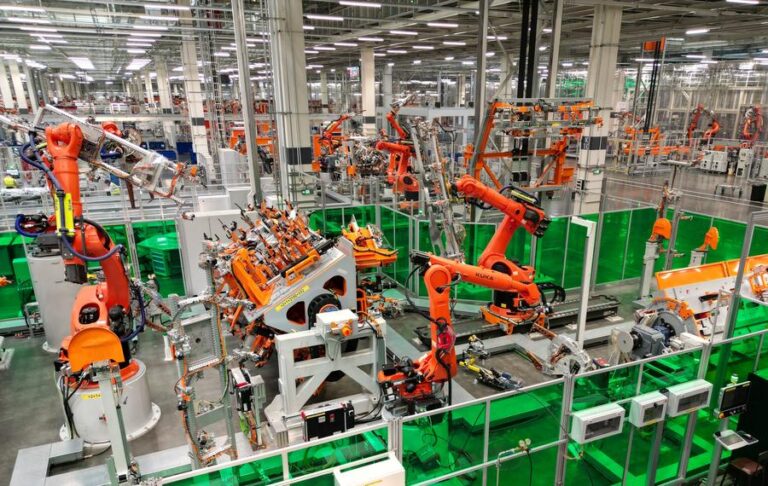CHANGCHUN, March 31 (Xinhua) — An increasing number of foreign-funded enterprises are seizing development opportunities in China’s new energy vehicle (NEV) sector by boosting investment, expanding their market presence, and advancing projects, research and cooperation.
The global automotive industry’s shift from internal combustion vehicles to NEVs has opened new opportunities for both China and Germany, said Helmut Stettner, CEO of Audi FAW NEV Co., Ltd.
“We see that the switch to electric mobility is accelerating in China, especially in the premium market. Despite some challenges, it continues to offer significant growth potential for Audi. We want to and will participate in this development,” he added.
In March, German carmaker BMW partnered with Chinese tech giant Huawei to develop an in-car digital ecosystem specifically tailored for the Chinese market. Tesla’s Megafactory in east China’s Shanghai, the first of its kind built by Tesla outside the United States, also exported its first batch of Megapack energy-storage batteries this month.
“China’s NEV market holds immense potential, continuously improving business environment and complete, efficient industrial and supply chains, which are the key factors driving foreign auto companies to invest and deepen their presence in the Chinese market,” said Gao Yuning, deputy dean of School of Public Policy and Management, Tsinghua University.
In 2024, China’s production and sales of NEVs both exceeded 12 million units, solidifying the country’s leading position in the global market. China has established a comprehensive industrial chain, supplying 70 percent of the world’s battery materials and 60 percent of power batteries.
In recent years, the Chinese government has created a favorable development environment for the NEV market through policies and measures such as purchase subsidies, extensive charging infrastructure, and the construction of intelligent connected vehicle demonstration zones.
Data from the Ministry of Commerce showed that over 60 percent of vehicles purchased under the automobile replacement and renewal subsidy policy in 2024 were NEVs. As of Dec. 19, 2024, foreign brands accounted for more than 35 percent of the vehicles purchased through the policy.
The open-mindedness of Chinese consumers toward new technologies and innovation, coupled with their focus on intelligent networking technology, has created new avenues for reform and business opportunities for foreign car companies.
According to a Tesla salesperson in Changchun, northeast China’s Jilin Province, in the past, customers paid more attention to cruising range and cost performance, but now they look at the intelligent configuration of vehicles, such as smart cockpits and automatic parking.
An increasing number of foreign car companies in China believe that developing new models tailored to the Chinese market is key to their future success. They are focusing on integrating smart driving, car networking and green solutions that align with the preferences and habits of Chinese consumers to achieve market breakthroughs.
Among them, Volkswagen Group signed a strategic cooperation agreement with China’s First Automobile Works (FAW) in March to introduce 11 new models specifically tailored for the Chinese market, starting in 2026.
“Our enduring partnership with FAW is a strong pillar of our success in China. Aligned with our ‘In China, for China’ strategy, we are further advancing FAW-VW’s product portfolio covering all powertrains, with a strong focus on NEVs, to meet evolving customer needs,” said Ralf Brandstaetter, chairman and CEO of Volkswagen Group China.
The steady development of the Chinese economy and China’s continuous high-level opening-up are the biggest sources of confidence for foreign investment to boost their presence in China, Gao Yuning said. ■

